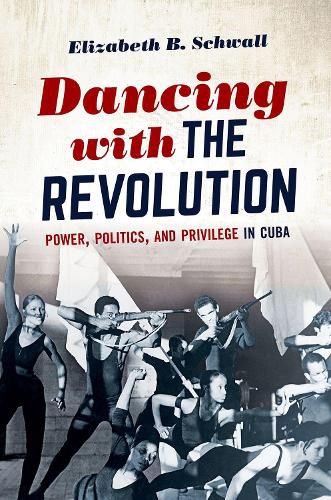Readings Newsletter
Become a Readings Member to make your shopping experience even easier.
Sign in or sign up for free!
You’re not far away from qualifying for FREE standard shipping within Australia
You’ve qualified for FREE standard shipping within Australia
The cart is loading…






Elizabeth B. Schwall aligns culture and politics by focusing on an art form that became a darling of the Cuban revolution: dance. In this history of staged performance in ballet, modern dance, and folkloric dance, Schwall analyzes how and why dance artists interacted with republican and, later, revolutionary politics. Drawing on written and visual archives, including intriguing exchanges between dancers and bureaucrats, Schwall argues that Cubans dancers used their bodies and ephemeral, nonverbal choreography to support and critique political regimes and cultural biases.
As esteemed artists, Cuban dancers exercised considerable power and influence. They often used their art to posit more radical notions of social justice than political leaders were able or willing to implement. After 1959, while generally promoting revolutionary projects like mass education and internationalist solidarity, they also took risks by challenging racial prejudice, gender norms, and censorship, all of which could affect dancers personally. On a broader level, Schwall shows that dance, too often overlooked in histories of Latin America and the Caribbean, provides fresh perspectives on what it means for people, and nations, to move through the world.
$9.00 standard shipping within Australia
FREE standard shipping within Australia for orders over $100.00
Express & International shipping calculated at checkout
Elizabeth B. Schwall aligns culture and politics by focusing on an art form that became a darling of the Cuban revolution: dance. In this history of staged performance in ballet, modern dance, and folkloric dance, Schwall analyzes how and why dance artists interacted with republican and, later, revolutionary politics. Drawing on written and visual archives, including intriguing exchanges between dancers and bureaucrats, Schwall argues that Cubans dancers used their bodies and ephemeral, nonverbal choreography to support and critique political regimes and cultural biases.
As esteemed artists, Cuban dancers exercised considerable power and influence. They often used their art to posit more radical notions of social justice than political leaders were able or willing to implement. After 1959, while generally promoting revolutionary projects like mass education and internationalist solidarity, they also took risks by challenging racial prejudice, gender norms, and censorship, all of which could affect dancers personally. On a broader level, Schwall shows that dance, too often overlooked in histories of Latin America and the Caribbean, provides fresh perspectives on what it means for people, and nations, to move through the world.